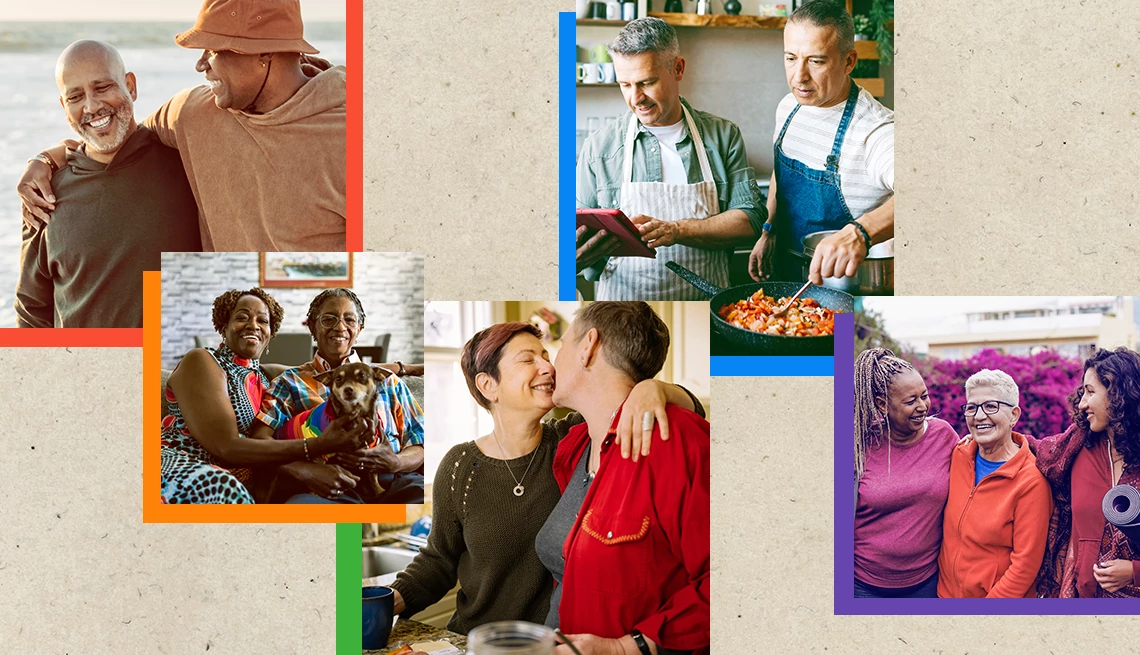AARP Hearing Center


Older adults who are lesbian, gay, bisexual, transgender, queer, intersex and asexual (LGBTQ+) are twice as likely as older heterosexuals to be single and live alone and four times less likely to have children, according to research from SAGE, an advocacy and social service organization focused on LGBTQ+ elders.
That means they’re less likely to have the traditional sources of family and caregiver support on which many older adults rely. AARP’s Dignity 2024 survey of LGBTQ+ people 45 and older found that 78 percent are concerned about having adequate family or social support as they age.
“Many LGBTQ+ people are estranged from family and rely on their family of choice to provide care for them,” says Cassandra Burton, a senior advisor at AARP who conducts AARP’s biannual Dignity survey.
Getting supportive medical care is another hurdle. “They do not feel like they are being heard by health care practitioners. They feel as if their concerns are not taken seriously and are dismissed,” says Burton, who adds that poor customer service is also an issue. “All of this is problematic — three in ten respondents avoided getting medical attention when they needed it.”
For all these reasons and more, providing and arranging care for older and disabled loved ones who are LGBTQ presents unique challenges, including ensuring that medical and long-term care services are respectful, affirming and inclusive and that legal documents are in place for caregivers from outside the immediate family to carry out health care and end-of-life plans.
To help, here are some resources for finding LGBTQ+-friendly care and support.
Caregiving information
The Family Caregiver Alliance provides services for caregivers of adults with chronic physical and cognitive conditions. Its website has fact sheets and FAQs on LGBTQ+ caregiving, and its CareNav platform offers information, support and resources tailored to registered users’ individual needs.
SAGE’s National Resource Center on LGBTQ+ Aging offers a wealth of health, policy and legal information, including a state-by-state directory of support organizations and a library of caregiving resources, some produced in partnership with AARP. SAGE has myriad other initiatives serving LGBTQ+ people 50 and older (see below for more SAGE services).
AARP’s LGBTQ+ Community Caregiving Guide offers practical guidance on developing and putting a caregiving plan in place for an LGBTQ loved one or friend. You'll find information on forming a team, accessing support, practicing self-care, navigating legal and financial issues, and more.



































































More From AARP
Tax Tips for Caregivers
Caring for a loved one could make you eligible for deductions and tax credits
What Caregivers Should Know About Transportation Services
Helping your loved one get around when you can't provide a ride
Heart Health Secrets from a Cardiologist
Keep your ticker in great shape as you age